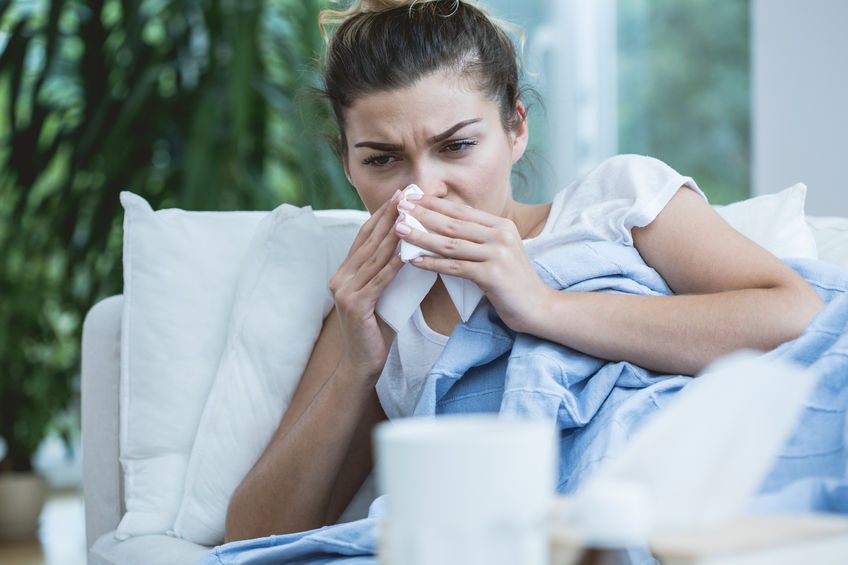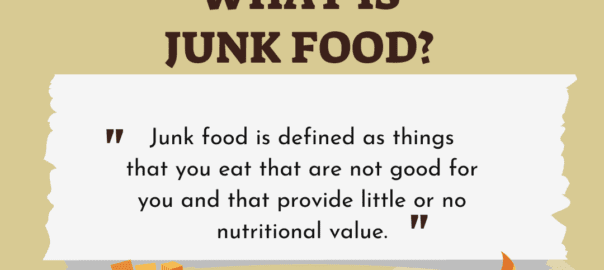Most of us pay more attention to our immune systems in the winter, when it has to work harder to fight off colds and the flu. The immune system is what nature has given us to defend against the onslaught of bacteria, viruses, fungus and even parasites that can overwhelm us and make us sick. These invaders have the ability to slip past our immune system and enter the body from many different sources. When the body is working properly, it has everything it needs to eradicate these antigens before they can reproduce enough to make us sick. Our immune system protects us from everything from cancer to the common flu.
When our immune system breaks down, however, we’re more prone to contract a disease or illness. There are certain lifestyle habits that can predict with some certainty whether you’re vulnerable to a weakened immune system. Not getting enough sleep, stress, not exercising and poor eating habits can all impair your immune system’s ability to keep you healthy.
How to Build Your Immune System
Unfortunately, there isn’t a single way to keep you free from every microscopic invader but there are some healthy practices that can help your immune systems in its efforts.
Eat Right
Getting adequate amounts of vital nutrients such as Vitamin D provides a critical boost to your immune system. Vitamin D helps the body produce antibacterial proteins and increases its efficiency at killing viruses and bacteria. Get at least 1,000 international units a day by eating foods rich in this vitamin, including fatty fish, fortified cereals and dairy products or by taking a vitamin D supplement. Avoid processed, sugary foods. Stick to fresh fruits and vegetables, lean meats and whole grains. Here are a few immune-boosting foods you should try:
- Yogurt — The probiotics in yogurt are healthy bacteria that help keep the gut and intestinal tract free of germs.
- Oats and barley — These two grains contain a type of fiber with antimicrobial and antioxidant capabilities to help fight illnesses.
- Garlic — Allicin, the active ingredient found in garlic, has shown to be effective in fighting infection and bacteria.
- Shellfish — Selenium, found in shellfish such as oysters, lobsters, crabs and clams help produce cytokines, which are proteins that help clear viruses from the body. Other seafood such as salmon, mackerel and herring are rich in omega-3 fats, which reduce inflammation in the body.
- Tea — Black and green tea boosts virus-fighting interferon in the blood by way of the antioxidant L-theanine.
- Beef — Red meat contains high amounts of zinc, one of the most common nutritional deficiencies among American adults. Even a mild zinc deficiency increases your risk of infection.
- Sweet potatoes — Rich in vitamin A, sweet potatoes help protect the skin, which is one key entrance point for germs into the body.
- Mushrooms — Studies show mushrooms help increase production and activity of white blood cells, which fight infection.
Sleep Tight
Getting the prescribed amount of sleep is important, as the body uses that time to heal. When you don’t get enough sleep, that healing time is restricted. Sleep also reduces stress, preventing your body from becoming weak and vulnerable to harm. Adults should get six to eight hours of sleep every night.
Move.
If your walking shoes have found their way to the back of the closet for winter, it’s time to dig them out. People who exercise at least five days a week have almost half the number of colds during the fall and winter as people who don’t, according to a study from Appalachian State University. Every time you exercise, your body boosts its production of germ-fighting neutrophils, reducing the chance you will get sick. Don’t overdo it, though. Any kind of vigorous exercise for more than 90 minutes at a time puts your body at a higher risk because it interprets the activity as stress.
Lower Your Stress Level.
Most people understand the importance of nutrition, exercise and sleep, but many people don’t understand stress. Stress isn’t always a bad thing. Sometimes it can serve as motivation. But chronic stress can be damaging to your health. A steady flow of the two stress hormones — cortisol and adrenaline — can weaken the immune system. Keeping stress to a minimum during the holiday season may sound impossible, but it’s necessary for your health. Make time for yourself, exercise and take the time to do things you enjoy in order to keep your stress level in check.
Limit Alcohol.
Alcohol can inhibit the function of the white blood cells and lower your day-to-day resistance to infection. Sugar is another thing to avoid because microbes love sugar. If you are going to use alcohol, make sure to keep it moderate. No more than two drinks a day for men and one drink daily for women.
Focus on Relationships.
Research has shown that people with a strong support system are healthier than those who don’t. People who spend time hanging out with friends rather than being homebodies during the winter may be healthier. Fostering a healthy sexual relationship shows even more immune system benefits. Those who had sex once or twice week had higher levels of the immune system protein immunoglobulin A than those who had less sex.
Not all illnesses can be avoided, but by taking care of your physical and mental health, you’re going along toward fighting off common winter illnesses such as the cold and flu.






